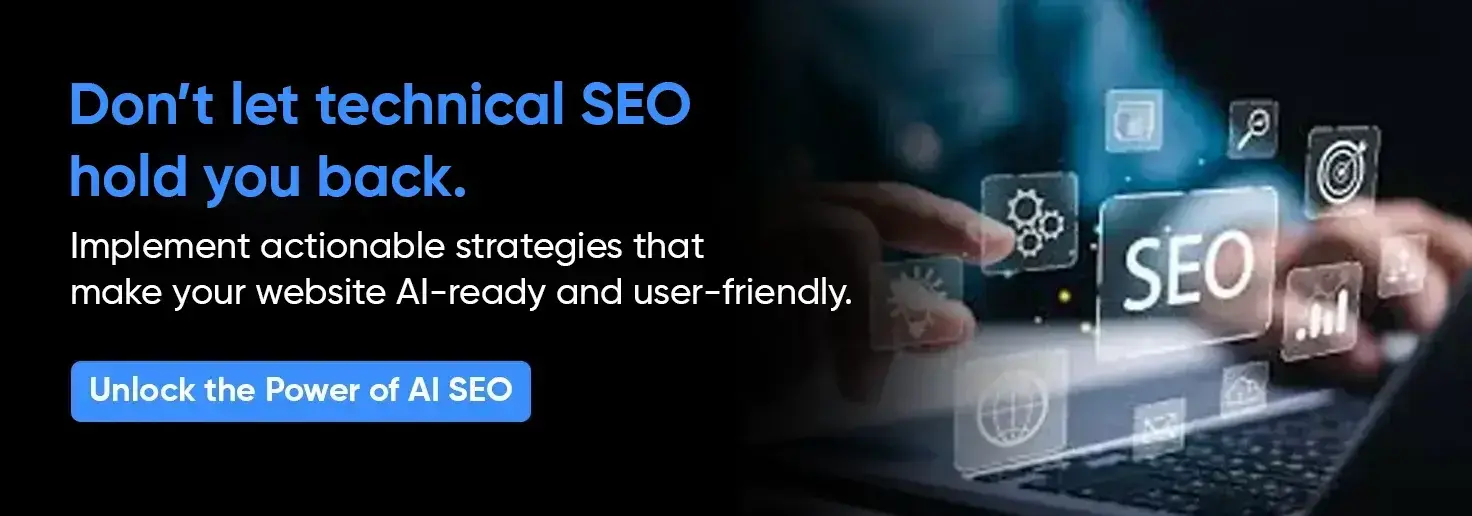The way we approach SEO is changing at an unprecedented rate. Today, artificial intelligence is at the heart of search engines, and simply existing a website is not enough; more effort is needed. It needs to be easy to understand, organized, and ready for AI to explain its value. Technical SEO has become the foundation for everything else, from how quickly your pages load to how clearly your information is structured. In this article, we’ll dive into the strategies that really matter in 2026 to help your website stay visible, user-friendly, and stay ahead of the curve in the AI-driven world of search.
✅The importance of technical SEO in the era of artificial intelligence
Some of Google’s AI-driven updates, such as RankBrain, MUM, and BERT, enable the search engine to understand content context and user intent as well as humans. However, that doesn’t mean content is everything. If there is no solid technical foundation, no matter how well the content is written, it will not get a good ranking. Here are some reasons:
- Different AI algorithms still rely heavily on well-structured and accessible data to learn and rank pages or websites.
- If your website is slow, difficult to crawl, or poorly structured, search engines won’t be able to interpret the content in the correct way.
- Many AI systems target different user experience metrics such as loading speed, interactivity, etc., which are directly related to technical SEO.
✅The ideal SEO technical strategy in the AI era
Structured data and schema markup
Artificial intelligence relies on structured data or information. Schema.org markup makes it easy for search engines to grasp content and promotes rich results (such as featured snippets). It is recommended to use a product or article schema to properly define key content types. Adding FAQ schema increases the visibility of your page in search engine rankings. Additionally, organizational patterns can be used to signal trust and brand authority.
Core web life and site speed
The AI model analyzes different user behavior patterns such as interactions, session duration, bounce rate, etc. If your website loads slowly or is cluttered, your bounce rate will be higher and will be noticed by search engines. Therefore, the focus should be on the following aspects.
- LCP or maximum content draw, used to measure website load time
- FID, or First Input Delay, measures the level of interaction
- CLS, Cumulative Layout Shift, measures visual stability
Compressing lazy-loaded images, minimizing JavaScript, using a CDN, and upgrading to faster hosting would be ideal solutions.
Optimize indexability and crawl budget
You need to remember that your website won’t receive unlimited attention from artificial intelligence. Additionally, Google’s bots, even the AI-based ones, have a specific crawling budget for each website. If a website’s technical structure wastes budget on errors, useless content, or duplicate pages, important pages may not be indexed in a timely manner. Check for broken links, duplicate content, redirect chains, sitemap coverage, robots.txt, and no index tags. Addressing these issues can easily help your website rank in AI searches.
Topic authority and semantic search
AI is able to understand the meaning and context of content, not just keywords. So, to position your website as an expert, create cluster pages and pillar pages that link to each other to provide in-depth coverage of a topic or theme. In addition to this, you also need to optimize your content for natural language processing or NLP by creating content in a conversational tone and structuring the content in a question type format. This is consistent with how humans talk to voice assistants and AI-based chatbots.
Server log file analysis
Another important technical SEO strategy in 2026 is the analysis of server log files. This analysis clearly shows how Google bots and other bots behave when crawling a website. You’ll learn where the bots go, how often, and what mistakes they face. Now you need to ensure that important web pages are crawled correctly and that AI-enhanced bots interact correctly with JavaScript. Best of all, detailed analysis provides a measured way to optimize technical SEO strategies based on the actual behavior of AI bots.
Proper normalization of AI-generated content
The use of artificial intelligence makes content generation easier and faster. However, websites creating similar types of content for web pages need to consider the correct canonical markup very carefully. Failure to do so may result in search engines indexing an incorrect version or not indexing it at all. Therefore, it is best to define a canonical URL for each web page.
Make sure to avoid the same content with slight variations.



